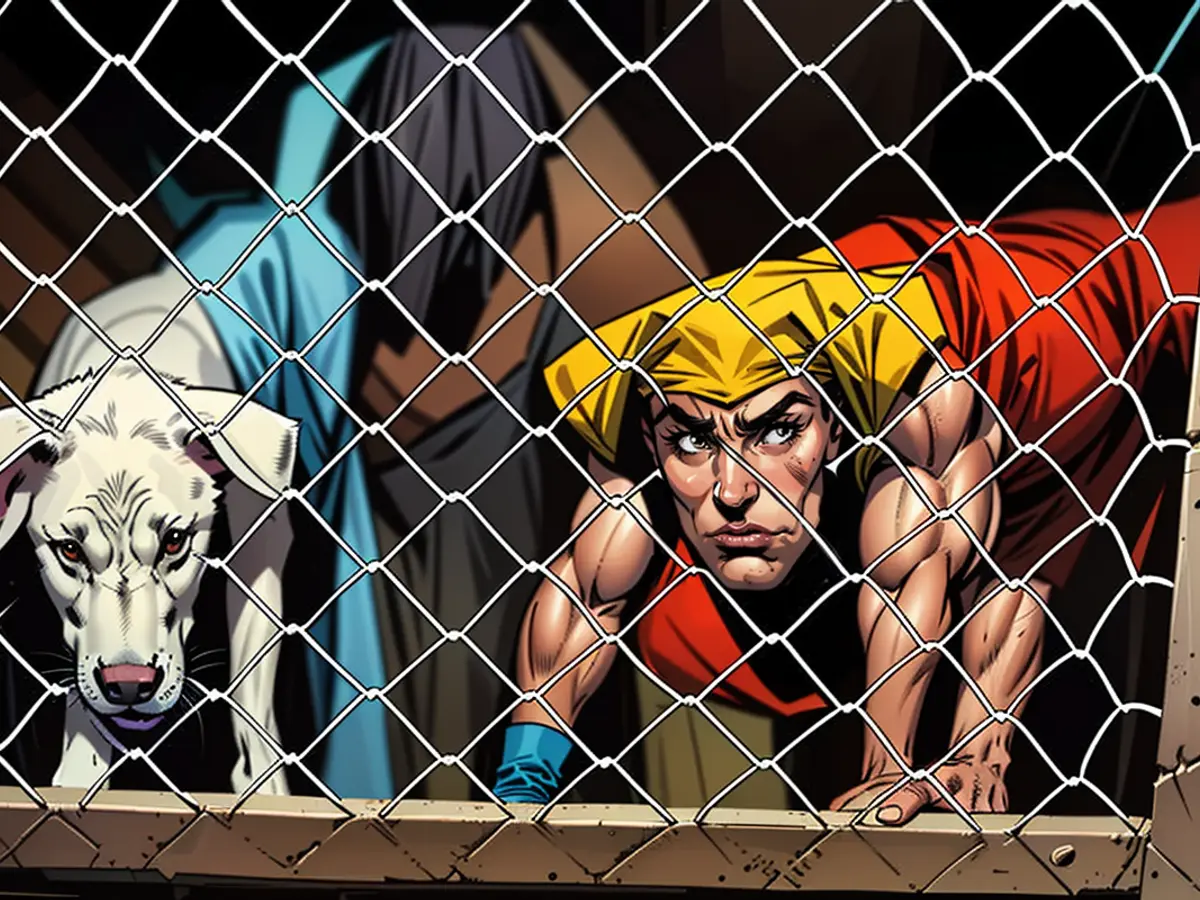A dog meat farmer is quitting the business
In Vietnam, approximately five million dogs are slaughtered annually for human consumption. The animals endure unimaginable suffering. The government is attempting to curb the trade. Animal rights activists rely on education and financial incentives - with success.
Tran Minh Hau gently strokes a brown puppy with affection. It's the last time he will see the animal. Instead of going to the slaughterhouse and the cooking pot, the puppy goes to an animal shelter - in the hope of being adopted and having a chance at a dignified life. Such an outcome is still the exception in Vietnam's brutal dog and cat meat trade.
Animal rights activists from the organization Humane Society International (HSI) have convinced Hau to abandon his business, a so-called "puppy fattening farm," two hours north of the Vietnamese capital Hanoi. In return, he receives financial support, equivalent to over 7000 Euro, as HSI expert Lola Webber explains. This is significant money in the southeast Asian country and enough for him to start anew.
"Harvesting bean sprouts and sweet potatoes will be much more peaceful than raising puppies for slaughter," quoted HSI another farmer who also intends to leave the grim business. "And it's much better for my mental health, knowing I'm not causing harm." Thirty-five dogs can be rescued by the activists on Hau's farm that day - and on another farm just as many.
Even Household Pets are Stolen
According to animal welfare organization Four Paws, at least five million dogs and one million cats are slaughtered annually in Vietnam. The business also thrives in other countries like China and South Korea.
The northern Vietnamese province of Thai Nguyen, where Hau resides, is a hotspot for this trade - a business whose gruesome details send shivers down the spine of every animal lover. Before they die, the quadrupeds usually go through hell.
Stray dogs on the streets are often captured with poisoned baits, painful electric shockers, or ropes. According to HSI, some are smuggled into the country in trucks and buses from neighboring countries like Cambodia. Even household pets are not spared. Angered villagers have even killed dog thieves.
"Beloved household pets are stolen, dogs are beaten and confined in cramped cages, transported over hundreds of kilometers, then have their throats slit or their hearts stabbed, all in front of other dogs," describes the organization Animal Asia on its website. "Every aspect of the trade is associated with extreme cruelty towards animals."
To evade inspections, traders smuggle the animals in the luggage compartments of buses to their destination, according to a new report from "Four Paws." They are packed so tightly that they barely get any air. They can hardly move. Many are dead by the end of the journey from suffocation, dehydration, or heatstroke. "What we saw during our investigation is hard to surpass in terms of cruelty towards animals," write the animal rights activists.

What Happens on the Mast Farms?
"Puppy fattening farms" (Welpenmastfarms) are a type of way station. Here, small dogs are prepared for later consumption - after all, they need to weigh a few kilos to please the palates of the end customers in restaurants or food stands. The specialty there is called "thit cho" in Vietnamese, meaning dog meat.
On farms, animals are kept in small concrete enclosures or cages, while they are fed rice porridge and pig brain. They are supposed to grow big and strong, so that in the end the cash register rings. One animal can earn up to 2.5 million Vietnamese Dong (around 90 Euro).
Approximately four months were the average length of time the dogs stayed with Hau. "I always felt sorry when I sent them to the trade," the 35-year-old man recounts. "I spent every day with them, and over time we grew closer." He used to eat dog meat himself, he admits, but he has stopped doing so now.
Fear of Rabies
Besides the suffering of the animals, there is another concern: The uncontrolled transport of unvaccinated animals under stressful and unsanitary conditions increases the risk of zoonoses. Brain samples from dogs at slaughterhouses were recently tested positive for the rabies virus.
The government is concerned about the spread of the disease and issued a regulation a few months ago, ordering local authorities to strictly implement rabies prevention and control. HSI expert Quang Nguyen says: "The dog meat trade in Vietnam is not only a disaster for animal welfare, but also incompatible with efforts to eradicate rabies in dogs."
The organization has now made agreements with several local governments to help companies abandon the trade in dog and cat meat, and to promote vaccinations and awareness campaigns. The goal is to eventually completely suppress consumption in the current hotspots.
Farmer Hau could already be convinced. "I no longer want to be involved in the dog meat trade," he said. "I know about the dangers of rabies and other diseases - and I don't want that for my family or my community."

The International Fund for Animal Welfare (IFAW) has expressed its support for the efforts of Vietnamese authorities and animal rights groups in their bid to ban the dog meat trade. They believe that this action would not only alleviate animal suffering but also address the public health risks associated with the unregulated trade.
In a similar effort, Animal Guardians Vietnam has launched an international campaign, appealing to foreign tourists to boycott restaurants serving dog meat. They believe that this could put pressure on the industry and encourage a shift towards more humane practices.






